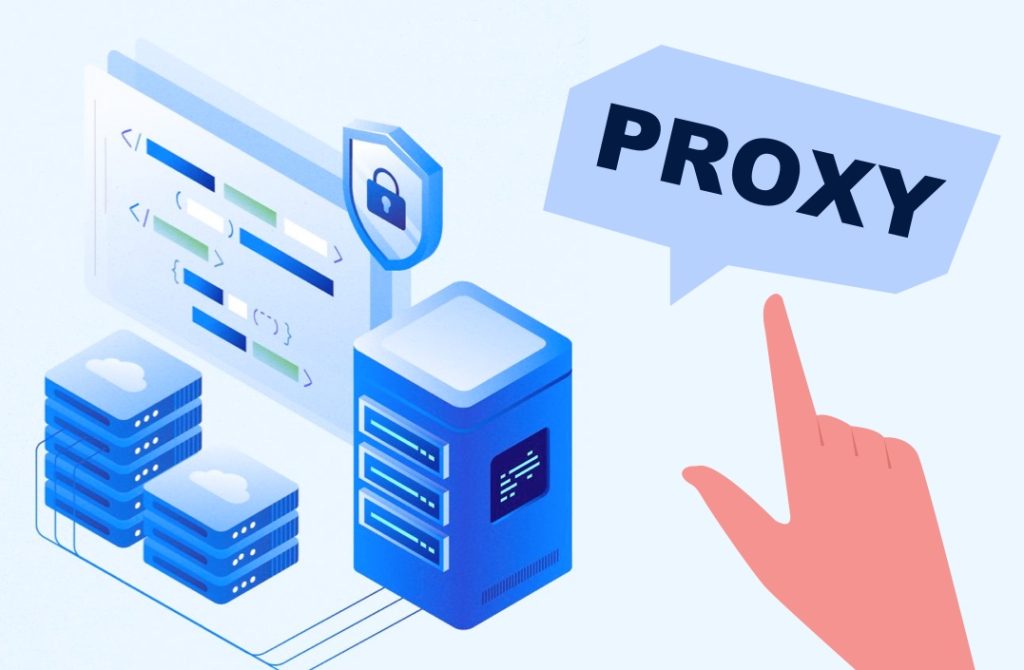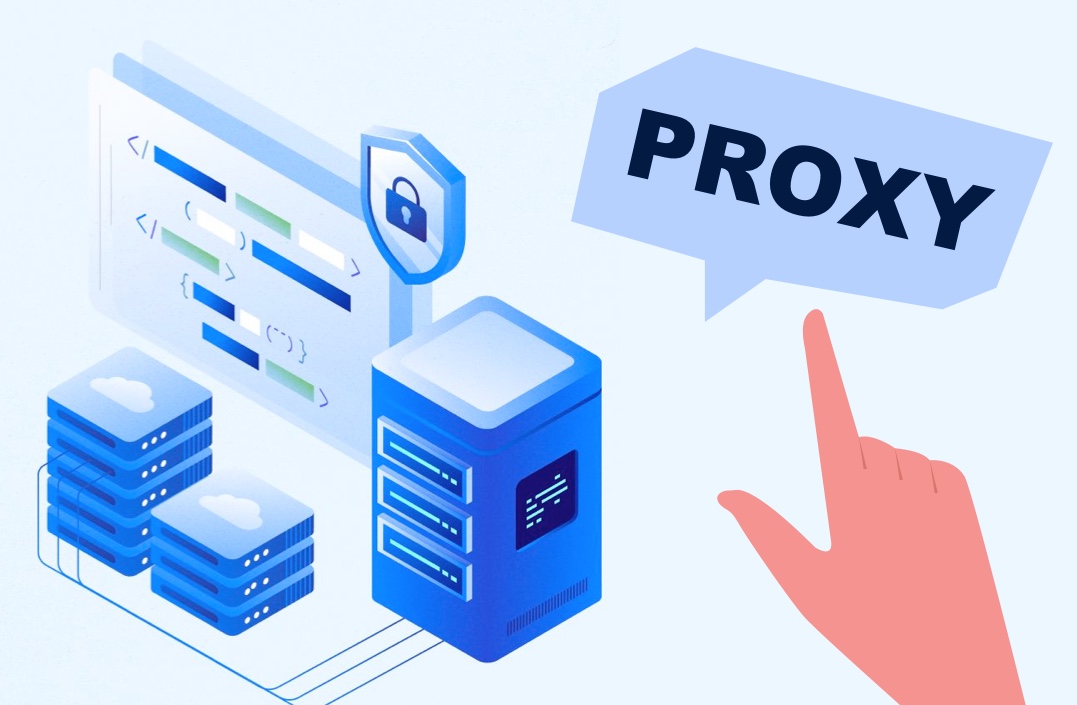Introduction
In today’s digital landscape, where online privacy and data security are of utmost importance, an HTTP proxy server is one of the essential tools to ensure secure, anonymous browsing. Whether you’re conducting web scraping, managing multiple accounts, or simply trying to secure your browsing activities, HTTP proxies offer significant advantages.
In this article, we’ll dive into what an HTTP proxy server is, the types of HTTP proxies, their benefits, common use cases, and how Cherry Proxy offers advanced solutions to enhance your online experience. Whether you’re a business looking to collect data or an individual seeking privacy, understanding HTTP proxies is key to maximizing their value.
What is an HTTP Proxy Server?
An HTTP proxy server acts as an intermediary between the client (your device) and the internet. When you use a proxy, your requests are first sent to the proxy server, which forwards them to the target website. The website responds to the proxy server, and the server relays the data back to you. By doing so, the proxy masks your real IP address and provides you with a new IP address from the proxy server.
How HTTP Proxies Work
Request Handling:
When you attempt to access a website, the request is sent to the HTTP proxy server instead of directly going to the website.
Forwarding Request:
The proxy server then forwards the request to the destination website.
Data Retrieval:
The website responds, and the proxy fetches the requested data.
Returning Data:
Finally, the proxy sends the data back to your browser, appearing as though the website interacted directly with the proxy server instead of your real IP.
The advantage of this process is anonymity, geo-targeting, and data privacy, which benefits both individuals and businesses.
Why Should You Use an HTTP Proxy Server?
HTTP proxies provide various benefits, especially in today’s highly connected, privacy-conscious world. Here’s why you might want to use one:
1. Boost Your Privacy and Security
One of the primary reasons people use HTTP proxies is for privacy. By hiding your real IP address, the proxy server protects your identity and makes it more difficult for websites to track your online activities. This is especially important for those who value anonymity or are working on sensitive tasks such as financial transactions or market research.
Moreover, proxies can act as a security shield by filtering malicious content, preventing harmful websites from accessing your device, and providing encryption for secure browsing.
2. Geo-Restriction Bypass
Many services restrict access to certain content based on the user’s location. For instance, streaming platforms like Netflix or BBC iPlayer offer different content depending on where you are. With an HTTP proxy, you can change your apparent geolocation, allowing you to access region-specific content.
With Cherry Proxy, users have access to global proxy pools and can easily bypass geo-blocked content, providing access to international websites and services.
3. Efficient Web Scraping and Data Collection
When scraping data from websites, proxies are crucial. Websites often block IPs that make repeated requests, especially in web scraping activities. By rotating through different IP addresses, HTTP proxies ensure uninterrupted access for data mining, competitor research, or market analysis.
Cherry Proxy’s rotating proxies and residential proxy pools are particularly useful for businesses conducting large-scale web scraping, ensuring access to important data while minimizing the risk of detection.
4. Manage Multiple Accounts Simultaneously
When managing multiple accounts on platforms such as social media or e-commerce websites, using the same IP for all accounts can trigger account bans or restrictions. HTTP proxies can assign unique IPs to each account, allowing seamless management without worrying about being flagged for suspicious activity.
5. Optimizing Performance and Load Balancing
Proxies can help optimize website access and browsing performance. By using proxies to distribute traffic or cache content, users can reduce website load times and improve speed. Businesses can ensure that web traffic is evenly distributed across different servers, preventing overloads and downtime.
Types of HTTP Proxy Servers
There are various types of HTTP proxies, and each has its use cases and advantages. Here’s an overview of the most commonly used types:
1. Residential Proxies
Residential proxies are provided by ISPs and are tied to real devices. Since these proxies use real IP addresses, they are less likely to be detected and blocked by websites. Residential proxies are ideal for activities that require high anonymity, such as web scraping or geo-targeted ads.
Cherry Proxy offers a wide selection of residential proxies to ensure safe and undetectable browsing. These proxies are particularly useful for market research or price monitoring.
2. Datacenter Proxies
Unlike residential proxies, datacenter proxies come from data centers and do not belong to any specific ISP. They tend to be faster and more cost-effective than residential proxies but are also easier to detect. These proxies are perfect for SEO tracking, competitor analysis, and large-scale data collection.
Cherry Proxy’s datacenter proxies are optimized for high-performance tasks such as SEO monitoring and real-time analytics.
3. Rotating Proxies
Rotating proxies automatically change IP addresses at fixed intervals or after each request. This helps users avoid detection when scraping websites or automating tasks. Rotating proxies are ideal for continuous web scraping and automated research.
Cherry Proxy’s rotating residential proxies allow businesses to conduct scraping activities without the fear of IP bans or captcha challenges.
4. Static Proxies
Static proxies provide a consistent IP address, making them suitable for activities that require consistent access from the same IP, such as managing secure logins or accessing services that need long-term IP association.
Why Choose Cherry Proxy for Your HTTP Proxy Needs?
Cherry Proxy stands out as a premium provider of HTTP proxies, offering a range of features designed to meet the needs of businesses and individuals:
1. High-Quality Proxy Network
Cherry Proxy offers a vast selection of residential, datacenter, and rotating proxies. With global coverage, users can access content from different regions and avoid geo-restrictions with ease.
2. High-Speed, Low-Latency Connections
Cherry Proxy guarantees fast, high-performance connections to support activities such as web scraping and data collection. Their proxies are optimized for low-latency, which ensures a smooth and uninterrupted experience.
3. Easy Integration with Web Scraping Tools
Cherry Proxy integrates seamlessly with popular web scraping tools like Scrapy, Puppeteer, and Selenium. This allows businesses to automate tasks and collect data efficiently using proxies without facing blockages or interruptions.
4. Reliable and Secure
Cherry Proxy prioritizes security and anonymity, offering encrypted connections to protect user data. Their proxies are designed to ensure safe browsing and privacy, making them ideal for users concerned about security.
5. Flexible Proxy Management
Cherry Proxy offers an intuitive dashboard for users to monitor, manage, and rotate their proxies easily. Users can adjust settings and choose proxies based on specific needs, whether for web scraping, geo-targeting, or social media automation.
Conclusion
HTTP proxy servers are essential tools for improving privacy, security, and performance when accessing online content. They help businesses and individuals manage multiple accounts, scrape data, and bypass geo-restrictions efficiently.
With Cherry Proxy, you gain access to high-quality proxies designed to enhance speed, security, and anonymity. Whether you’re conducting market research, managing social media accounts, or scraping data, Cherry Proxy offers the perfect HTTP proxy solutions for all your online needs.
FAQ
What is HTTP proxy vs HTTP?
HTTP is a protocol used for transferring web data between a client (e.g., browser) and a server. It enables users to request and receive content from websites.
An HTTP proxy is an intermediary server that sits between the client and the server. It forwards requests from the client to the server and returns the server’s response. HTTP proxies are used for privacy, security, geo-restriction bypassing, and data scraping.
In short, HTTP is the protocol for communication, while an HTTP proxy is a server that handles and redirects that communication for added security and functionality.
What is a proxy server and its uses?
A proxy server is an intermediary that forwards requests between a client and the internet, masking the client’s IP address.
Uses of a Proxy Server:
1.Privacy and Anonymity: Hides your real IP address.
2.Bypass Geo-Restrictions: Access content from different locations.
3.Improved Security: Protects from harmful content and attacks.
4.Web Scraping: Collect data without getting blocked.
5.Managing Multiple Accounts: Use different IPs for various accounts.
6.Speed and Bandwidth Management: Caches content for faster access.


